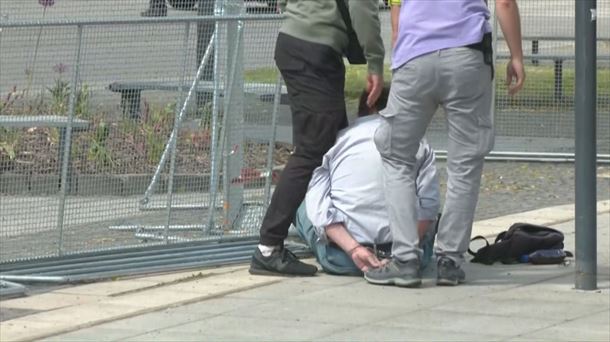31.5% of voters decided not to go to the polls, the lowest figure in elections since the triumph of the revolution
Cuba registered a historic abstention in last Sunday’s municipal elections. 31.5% of voters decided not to go to the polls, an unprecedented number since the triumph of the revolution in 1959. A total of 8.3 million people were called to the polls (Cubans abroad could not vote). Only 5.7 million of them came to exercise their right. Of the valid votes, 5.22% were blank and 5.07% were invalid.
The abstention is historical and presupposes the confirmation of a trend. In Fidel Castro’s time, participation never fell below 95%. However, in 2015, with Raúl Castro in power, abstention reached 11%; in 2017, the last municipal elections, this rose to 14%; and last September, in the referendum calling for approval of a new family law – which includes equal marriage – 25% of Cubans with the right to vote decided to stay at home.
Analysts point to the penal mood and disenchantment with the system as the main reasons for the high abstention rate. But they also underline the irrelevance of the elections. The Cubans have elected their delegates – a figure similar to a neighborhood councilor – who will in turn elect the president and the rest of the offices of the Municipal Assembly of People’s Power, the highest local legislative body. That is, local authorities are not directly elected. In addition, it should be taken into account that 70% of the candidates are members of the Communist Party – the only legal party on the island – or the Union of Young Communists.
“The elections took place as planned, peacefully and in accordance with the law,” Alina Balseiro, president of the National Electoral Council, said at a press conference on Monday to present the results. No major incidents were disclosed, despite opponents and activists denouncing that some of them could not act as observers.
“The results show the support of the Cuban people for their representatives and the confidence in their revolution,” Balseiro said. He also reported that on Sunday, 11,502 of the 12,427 delegates to be elected had been elected. The remaining 925 positions will undergo a second round on December 4, as none of them received more than 50% of the vote, as required by law.
So far, no one from the Cuban government has reviewed these results, and the state media has hardly devoted less space to them on their web pages and front pages. The president, Miguel Díaz-Canel, confined himself to confirming on election day that the elections confirmed that “Cuba maintains its political and social stability, regardless of the economic suffocation they try to impose so that the population, out of discontent, hopelessness and due to shortcomings provide the much-anticipated social breakout that the Imperial government wants » The president returned to the island just after an international tour that led him to meet his Russian counterpart, Vladimir Putin; inaugurate a statue of Fidel in Moscow and receive a $100 million donation from the Chinese government.
The election presupposes the pistol shot of the election cycle that will end in 2023. Then the parliamentary elections will take place, in which the parliament will be renewed. The legislature, in turn, will elect the president of the republic, a position that Díaz-Canel can elect again.
All this will happen at a time when Cuba is going through a critical moment. Blackouts, for up to 12 hours a day in some areas, are constant, high inflation makes it hard for many families to make ends meet and there is a shortage of medicines island-wide along with a gradual deterioration in health services . To this must be added the devastating effects of Hurricane Ian a few weeks ago. Due to the difficult situation, there has been a mass exodus in the past year. Some 250,000 Cubans have tried to enter the country since September 2021, according to US Coast and Border Guard data.
Havana attributes most of its ailments to the blockade to which Washington subjected the island. Recently, the UN General Assembly called again for an end to the sanctions that are stifling the Cuban economy. This is the thirtieth time he has demanded such a thing. The non-binding resolution was supported by all United Nations countries except the United States and Israel. Ukraine and Brazil abstained from voting.
Source: La Verdad
I am an experienced and passionate journalist with a strong track record in news website reporting. I specialize in technology coverage, breaking stories on the latest developments and trends from around the world. Working for Today Times Live has given me the opportunity to write thought-provoking pieces that have caught the attention of many readers.



